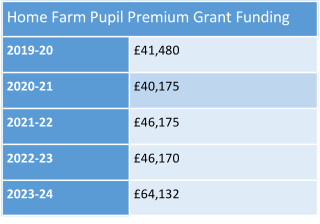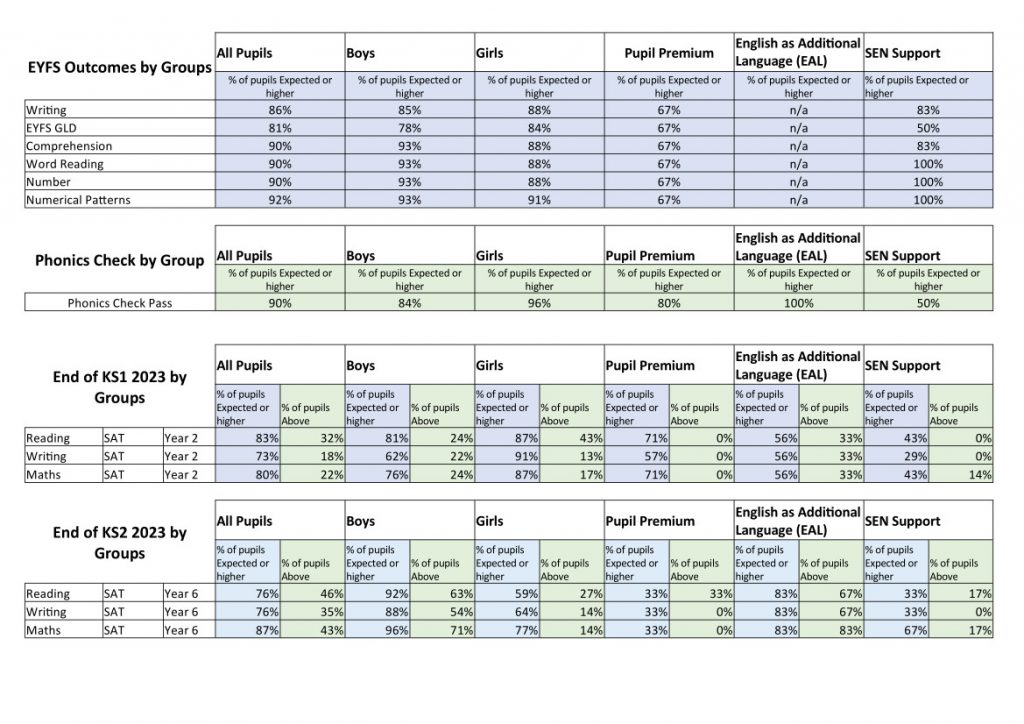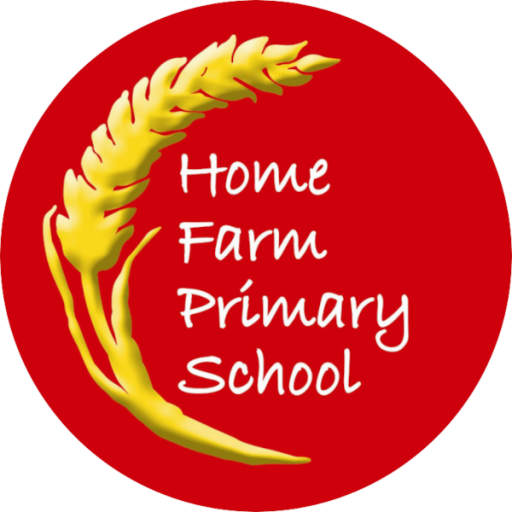What is Pupil Premium Grant?
The Pupil Premium Grant is additional funding for the school from the Government, based on the number of pupils eligible, or who have been eligible, for free school meals (FSM) within the last six years.
The funding is designed to address the current underlying inequalities between children eligible for FSM and their wealthier peers by ensuring that funding to tackle disadvantage reaches the pupils who need it most.

Each school can make its own decisions about how to spend this funding, but schools are accountable for what the funding is spent on, and must show that they have achieved value for money through improving the progress of the targeted children.
PPG was introduced in 2011. The grant is currently paid at £1,455 per child (there are different levels of funding for service children or children who have been adopted from care).
In addition to PPG, in 2020-21, 2021-22 and 2022-23 we received an allocation of the Government’s Covid ‘catch-up’ funding. You can see further details of how this was used on our Covid Recovery Plan.
In 2023-24, we will receive Covid recovery funding and Pupil Premium Grant. You can see our strategy for investing this funding below. We review our strategy in the Autumn term each year.
Our Approach
On average, pupils at Home Farm who qualify for Pupil Premium do as well or better than their peers, although we have very small numbers of pupils qualifying for PPG, so our data is based on a small cohort size.
We take a wider view of the term ‘disadvantaged’: these can include but are not limited to those attracting PPG funding, mobile pupils just joining us, those who have had medical absences, those open to support from outside agencies including social care and pupils of Service Personnel.
Our approach to tackling the barriers to educational achievement is focused on curriculum mastery – we use 1:1 tuition and small group teaching to activate prior learning and recap learning.
This approach has the benefit of maximising teacher to pupil ratios in order for staff to give effective feedback and direct teaching on a regular basis as well as dedicated supportive interventions for specific needs related to those pupils’ area of disadvantage.
Annual Summaries of Funding and Expenditure
In 2023-24, we are continuing our focus on curriculum mastery and micro-teaching for PPG pupils requiring support or extension through smaller group teaching. We continue to supplement this with 1:1 or paired interventions for PPG pupils including Forest Schools. We are investing in training for our teaching and learning support assistant staff to build their skills and capacity in delivering psycho-dynamic approaches to support PPG pupils, and we are providing enrichment opportunities for PPG pupils.
This builds on our focus from 2016 to 2023. Our approach has used mastery techniques and focused on micro-teaching for PPG pupils requiring support or extension in class, with smaller group teaching to ensure targeted feedback and individualised learning. This was supplemented this with 1:1 or paired interventions for PPG pupils with specific needs across all year groups, but specially KS1 to develop early hand control, memory, phonic and arithmetic ability; and with targeted opportunities for KS1 and 2 pupils to have help with homework from an adult. We have also invested in investing in resources to support the delivery of interventions for PPG pupils.
* Due to small pupil premium numbers per class we do not always give percentages for outcomes as these could be 50% or 25% per child.
PPG funded activity
How do we review our impact?
Pupil Premium Grant reviews take place every half-term, during which teachers meet with senior leaders to review pupil progress and accelerated learning. Pupil outcomes are discussed and challenged, and in this way we embed an approach based on continuous improvement. The Governing Body reviews pupil data for the school as a whole but also for specific groups including PPG children, and provides scrutiny and challenge to the senior leadership team.
Outcomes of Pupil Premium Grant Expenditure
On average, pupils qualifying for Pupil Premium do as well as their peers or better in terms of progress in reading and writing. However we have small numbers of pupils who qualify for Pupil Premium Grant so our progress data is based on very small cohort sizes. Further details of our outcomes are below.

Home Farm Recovery Plan
In additional to Pupil Premium Grant funding, from 2020 to 2023, Home Farm received additional Government funding to support ‘catch-up’ following missed provision.
Our aim is to identify, support and accelerate the learning of pupils with disrupted access to school in 2019-20. All pupils, through focussed assessment of missing learning from 2019-20, will be supported to reach their age-related expectation.
All pupils experienced lockdown from March 2020 until June 2020, with Years 2-5 only returning for focussed teaching days in July. Throughout lockdown, interactive teaching lessons were set remotely, and pupils completed learning via film, writing, picture and completed sheets. Teachers and Learning Support Assistants provided daily feedback about learning using our online system. Over 6000 pieces of work were reviewed, marked and commented on each week during this process.
When schools returned, some learning had been missed; content not covered, skills forgotten, and standards lessened. Our recovery plan covers both the curriculum and the extra provision we have put in place to target certain extra learning to close the gaps of pupils who suffered due to lockdown.
